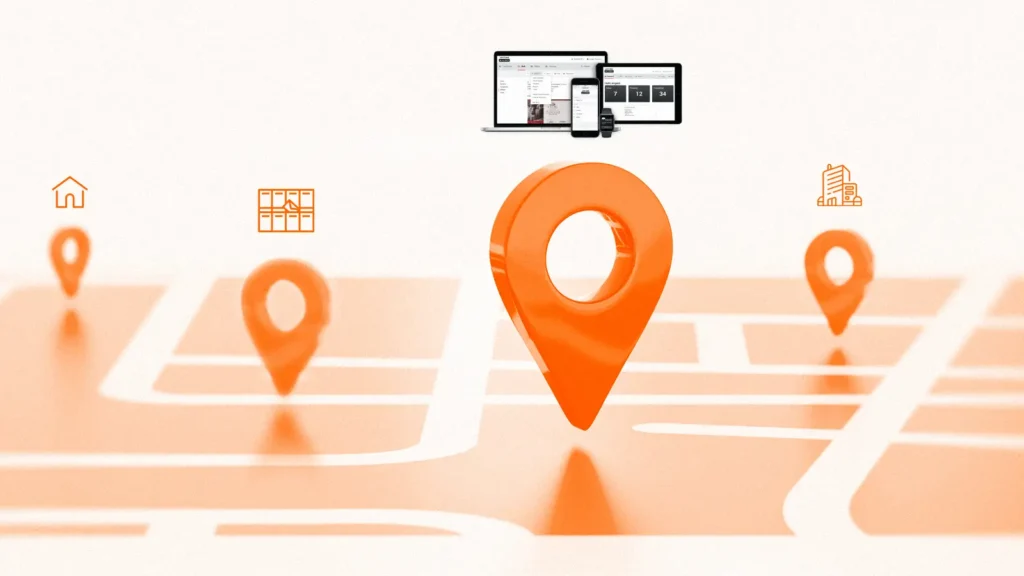In the rush leading to registering your business, it’s all too easy to default to writing your personal address thinking that you can change it later. However, lack of careful consideration on the street address used when registering a business can lead to unintended consequences. As such, we’ve put together a useful guide on this topic.

Why Do You Need a Dedicated Business Address?
Your business address is more than a mere formality. Your business address is the gateway to your professional identity and it plays a pivotal role in:
- Credibility
- A professional address instills trust and credibility in your clients. When they perceive you as a legitimate and established business, they’re more likely to choose your services or products.
- Your business address is often one of the first things clients notice, making it a key factor in shaping their initial impressions of your business.
- Legal Compliance
- Certain types of businesses, especially those in highly regulated industries, are required to have a physical address to comply with licensing and regulatory requirements.
- A suitable business address ensures you meet these legal obligations and avoid potential legal issues down the road.

- Mail and Package Handling
- Your business address serves as the hub for all your mail and packages. This centralized location simplifies mail management, ensuring you don’t miss important documents, contracts, or essential correspondence.
- It can also enhance your efficiency in sending and receiving packages related to your business operations.
- Branding
- Your business address is integral to your brand identity. It conveys professionalism and trust to clients and partners.
- It positions your business in specific markets, offers consistency across branding materials, makes a positive first impression, and indicates a local presence.
- By selecting an address that aligns with your brand’s goals, you can enhance recognition and appeal.

- Privacy
- Using a dedicated business address protects your privacy. With a separate business address, you avoid exposing your personal address to the public.
- This safeguards you from unsolicited mail, identity theft, and potential security risks.
- It also helps establish more clear boundaries between your personal and professional life.

4 Different Types of Business Addresses
Before you make a decision regarding a business address, it helps to understand the available options. Here are the four main types of business addresses and their respective pros and cons:

- Home Address
A home address, as the name suggests, is the location where you reside. Using your personal address for business means operating your business from your residence.
Using your home address can be tempting as a cost-effective option, providing convenience and saving on commuting expenses. However, it can raise privacy concerns, might not be perceived as professional, and may have legal restrictions depending on local zoning laws.
Pros:
- Cost-effective: Operating your business from your personal home address is often budget-friendly. You avoid additional expenses associated with renting a separate space.
- Convenience: Your office is right where you live, offering convenience and minimal disruption to your daily routine.
- No Commute: Say goodbye to commuting hassles and expenses; your office is just a few steps away.
Cons:
- Privacy Concerns: Using your personal address means it becomes publicly available, potentially exposing you to privacy breaches, unwanted solicitations, or safety concerns.
- Lack of Professionalism: Some businesses, especially those seeking to establish a high level of professionalism, may not be perceived as credible when using a residential address.
- Legal and Licensing Limitations: Zoning laws and regulations can restrict certain types of businesses from operating out of residential addresses. This could limit your business activities.

- P.O. Box
A P.O. Box, or post office box, is a private mailbox provided by the post office or mailbox service companies. It’s not associated with your home or office and is often used for mail and package receipt.
The advantages include privacy and security, as it keeps your personal address confidential. However, some institutions do not accept post office box addresses, and it may not convey a professional image.
Pros:
- Privacy: A post office box ensures your personal address remains confidential, guarding against potential privacy breaches.
- Security: Using a P.O. Box reduces the risk of theft, mail fraud, or scams, providing added security for your important documents and correspondence.
- Fixed Location: Your business maintains a stable address that doesn’t change, even if you relocate your home or office..
Cons:
- Limited Usage: Some government agencies, banks, and licensing authorities don’t accept P.O. Box addresses for official business activities or documents, potentially creating complications for your business.
- Lack of Professional Image: The use of a post office box might give the impression that your business is less credible or established compared to those with physical office locations.
- No Physical Presence: A PO Box doesn’t provide a physical workspace or meeting area for you to interact with clients or partners in person.

- Traditional Office Space
Traditional office space refers to a physical office location that businesses rent or own. It provides a professional image, access to meeting spaces, and is suitable for various business types. However, it’s costlier due to rent, insurance, and maintenance, requires long-term commitments, and involves a commute.
Pros:
- Professional Image: Renting a traditional office space projects prestige, which can contribute to your business’s reputation and perceived credibility.
- Meeting Space: Having your own office space allows you to host in-person meetings, interviews, training sessions, and client visits, promoting collaboration and strengthening relationships.
- Zoning Compliance: Traditional office spaces are suitable for various types of businesses and typically adhere to local zoning regulations.
Cons:
- High Cost: Rent, utilities, insurance, maintenance, and furnishings associated with traditional office spaces result in considerably higher operational expenses.
- Long-term Commitment: Commercial leases often entail long-term contractual commitments, potentially limiting your flexibility and financial resources.
- Commute: Requiring time and expenses for commuting to your office adds another layer of complexity to your daily work-life balance.

- Virtual Mailbox
A virtual mailbox is a digital solution that provides a prestigious business address for mail and package receipt. It offers the benefits of a professional image, privacy, remote access to mail, and is cost-effective compared to traditional office spaces. However, it lacks a physical workspace for meetings and may not be suitable for all business types and some individuals may question its legitimacy compared to physical offices.
Pros:
- Professional Image: A virtual mailbox provides your business with a real street address, enhancing your brand’s reputation and professionalism.
- Privacy and Security: It ensures your personal address remains private, shielding you from potential privacy breaches and security concerns.
- Remote Access: A virtual mailbox enables you to conveniently manage your mail and packages from anywhere with an internet connection.
- Cost-effective: Compared to the expenses of traditional office space, a virtual mailbox is a more affordable option that saves your budget.
Cons:
- Limited Physical Presence: A virtual mailbox doesn’t offer a physical workspace for meetings or in-person collaboration, which might be essential for some businesses.
- Not Suitable for All Businesses: It’s crucial to check local regulations and ensure your type of business can legally operate using a virtual address, as it may not be appropriate for certain industries or licensing requirements.
- Perceived Legitimacy: Although entirely legitimate, some individuals or entities may question the credibility of a business using a virtual mailbox address compared to traditional offices.

7 Factors to Consider When Registering Your Business
Choosing a business address is a multifaceted decision. Here are seven crucial factors to consider:
1) Business Type
- The nature of your business is a critical factor. Some businesses, such as retail stores or restaurants, require a physical presence, while others, like consulting or e-commerce, can function effectively with virtual solutions.
- It’s essential to align your address with your business model.
2) Legal Regulations
- Every region has specific laws and regulations regarding business addresses, zoning, and licensing. It’s vital to research and understand these legal requirements to ensure compliance.
- Ignoring legal obligations can lead to complications down the road.
3) Budget
- Your financial capacity plays a significant role in your address choice. Consider your budget for maintaining the address, including rent, mailbox services, or other associated costs.
- It’s wise to choose an address that aligns with your financial resources.
4) Scalability
- Think long-term. A growing business might require more space and a prestigious address to maintain its professional image.
- Assess whether your chosen address can accommodate your business’s future expansion.
5) Business Image
- The address you select directly contributes to the image your business conveys. For some, a prestigious address enhances credibility, while others may prioritize budget-friendly options.
- Consider what image aligns with your business goals and values.
6) Commute and Convenience
- The location of your business address can impact your daily routine. A long commute to a physical office can be time-consuming and costly.
- Evaluate the convenience and practicality of commuting to your chosen address regularly.
7) Privacy
- Protecting your personal address and data is crucial. Using a business address, whether physical or virtual, helps maintain your privacy and may be required to comply with data protection and privacy laws.
- Ensure that your chosen address aligns with privacy and legal requirements.
How to Register A Business
The process of registering a business involves several key steps:
- Choose a Business Structure
- Decide on the legal structure of your business, whether it’s a sole proprietorship, partnership, LLC, corporation, or another entity.
- Your choice will influence how you register and operate your business.
- Select a Business Name and Address
- Choose a unique and legally acceptable name for your business. You may need to verify name availability with the Secretary of State’s office.
- Provide a physical address for your business. You can choose between using your personal address, an office address, a P.O. box address, or a virtual mailbox address, depending on the specific needs of your business.
- File Required Documents
- Prepare and submit the necessary registration documents to the Secretary of State’s office. These documents typically include articles of incorporation or organization, which outline key details about your business.
- Obtain an Employer Identification Number (EIN)
- If your business is structured as anything other than a sole proprietorship, you’ll need an EIN from the IRS for tax purposes.
- Comply with Local Permits and Licenses
- In addition to state-level registration, your business may require local permits and licenses, depending on your location and industry.
- Pay Registration Fees
- Be prepared to pay the associated registration fees. These fees vary by state and entity type.
- Wait for Approval
- Once you’ve submitted your documentation, the Secretary of State’s office will review it. The processing time can vary, and you’ll typically receive a certificate of registration upon approval.
- Fulfill Ongoing Requirements
- After registering your business, you’ll need to fulfill ongoing obligations, such as filing annual reports, maintaining good standing with the state, and paying state taxes.
- Consider Consulting Legal or Business Professionals
- The process of registering a business can be complex. Consider seeking assistance from legal or business professionals who can guide you through the process and ensure compliance with all relevant laws and regulations.
- Remember that registering your business is a crucial step in establishing a legal and operational foundation for your enterprise.
- Always double-check the specific requirements of your state to ensure a smooth and legal registration process.

Conclusion
It’s crucial to be savvy about securing the privacy of your personal address by separating it from a business address, and the decisions you make regarding the address you use when registering your business will matter to you and your family’s privacy and security.
Beyond that, it can impact the image of your business and hence, the bottom line.
Learn more or browse the over 2,200 available locations with Anytime Mailbox.
Frequently Asked Questions (FAQs)
Where can I register a business?
- Businesses in the United States are typically registered with the Secretary of State’s office in the state where the business operates.
- The exact process and requirements can vary from state to state, so it’s essential to check with the specific Secretary of State office or a legal professional to ensure compliance with state regulations.
- Registering your business involves submitting the necessary documentation, which may include your business name, structure, ownership, and other relevant details. The government will then review this information before granting approval.
- Processing times can vary depending on the state and the type of business entity, such as a sole proprietorship, LLC, or corporation.
What’s the difference between primary address and permanent address?
- The difference between the two is that your primary address is where you operate your business, while your permanent address is where you reside.
- While these addresses can be the same, they don’t have to be. Businesses often have a separate primary address to keep their professional identity distinct from their personal life.
Do I need an address for a small business?
- Yes, even small businesses require a business address. A business address is necessary for legal compliance, receiving official mail, and creating a professional image.
Can a virtual address be used as a business address?
- Yes, a virtual address can be used as a business address. However, it depends on local regulations.
- Virtual addresses have gained popularity as a flexible and cost-effective option for businesses, especially for those that operate remotely.
Can you register a business with a virtual address?
- Yes. You can register a business with a virtual address in most cases. However, it’s essential to ensure that your chosen virtual address complies with all legal and licensing requirements in your jurisdiction.
- It’s generally wise to check with local authorities or consult a legal professional to ensure full compliance.
What are the consequences of choosing the wrong business address?
- Choosing the wrong business address can have several consequences.
- It can lead to legal issues, including non-compliance with zoning or licensing regulations.
- Additionally, it can damage your business’s credibility, making it challenging to gain trust with clients and partners.
- Moreover, the wrong business address might limit your business’s potential for growth and success.
Can I change my business address later if needed?
- It’s possible to change your business address, but it can be a complex process. You’ll need to notify relevant authorities, update your business registration documents, and potentially comply with new zoning or licensing requirements.
- It’s essential to consult with professionals or legal experts to navigate this process effectively.
Can I use a coworking space for my business registration?
- Sometimes. There are several coworking spaces that offer the option to use their address as your business address. This can be a practical solution, especially if you don’t have a physical office.
- However, it’s important to check if this aligns with your business needs and local regulations. Always ensure that your business registration remains compliant with local laws.
Is a virtual mailbox legit?
- Yes, a virtual mailbox is a legitimate and widely used service. It provides a real street address for receiving mail and packages, which is particularly valuable for remote workers, frequent travelers, and small businesses.
- Virtual mailbox services are offered by reputable companies, and they comply with all applicable postal regulations. They are a secure and convenient way to manage mail remotely, offering features like mail scanning, forwarding, and secure storage. It’s essential to choose a reputable provider and read reviews to ensure you’re working with a legitimate and trusted service.
What are examples of a virtual mailbox service?
- Anytime Mailbox is a leading virtual mailbox service that offers a range of plans starting as low as $5.99 per month. With Anytime Mailbox, you can enjoy several benefits.
- First, you get a real street address in a prestigious location, which can enhance your professional image. You can choose from over 2,000 locations in the United States and across the globe.
- You’ll also have a secure and private mailbox that can receive all your mail and packages.
- What sets Anytime Mailbox apart is its user-friendly mobile app, which allows you to manage mail fully remotely.
- When you receive mail, you can choose to have it opened and scanned, forwarded to any location, or even shredded if it’s junk.
- This level of flexibility is perfect for today’s remote and mobile professionals.
How do post office boxes work?
- Post office boxes are managed by your postal service and they work by providing a secure location for individuals and businesses to receive mail.
- Once you’re assigned your own specific post office box and access key, mail is placed directly into your assigned box.
Are post office boxes free?
- Post office boxes are not free. You need to pay a rental fee to use one. The cost varies depending on the size of the box, location, and whether it’s a post office box or a private mailbox from a service provider.
How do you get a P.O. box?
- To get a P.O. box, you’ll need to visit your local post office, select the appropriate box size, and complete the necessary application, providing required identification.
- The rental fee is usually billed on a monthly or annual basis.
- Upon renting, you receive a key or combination code for access to your P.O. box.
- Post office boxes are valuable for individuals and businesses alike who seek a secure location to receive mail, particularly when privacy is a concern or when a distinct mailing address is needed for business purposes.
- It’s essential to remember that P.O. boxes have limitations. For example, they may not be accepted for specific business licenses or as a registered agent address for LLCs and corporations in some states.
What are examples of P.O. boxes?
- An example of a P.O. box (post office box) would be one rented from your local post office or a private mailbox rental service. P.O. Boxes are typically located within post office facilities or at private mailbox service providers. For example, the U.S. Postal Service (USPS) offers P.O. Boxes in various sizes for rent at post office branches across the United States.



